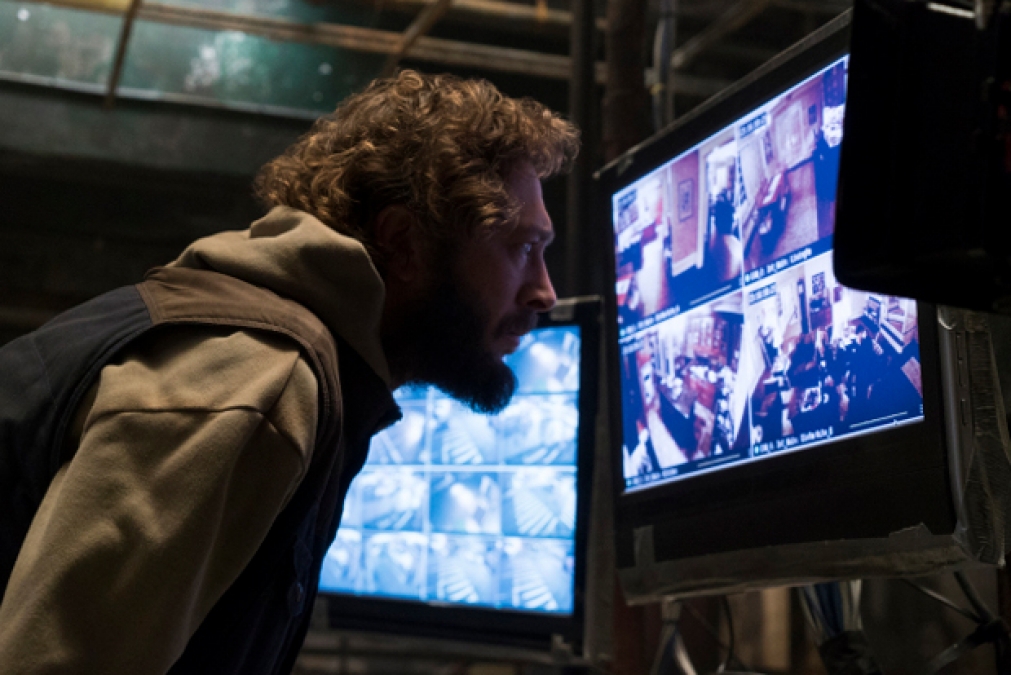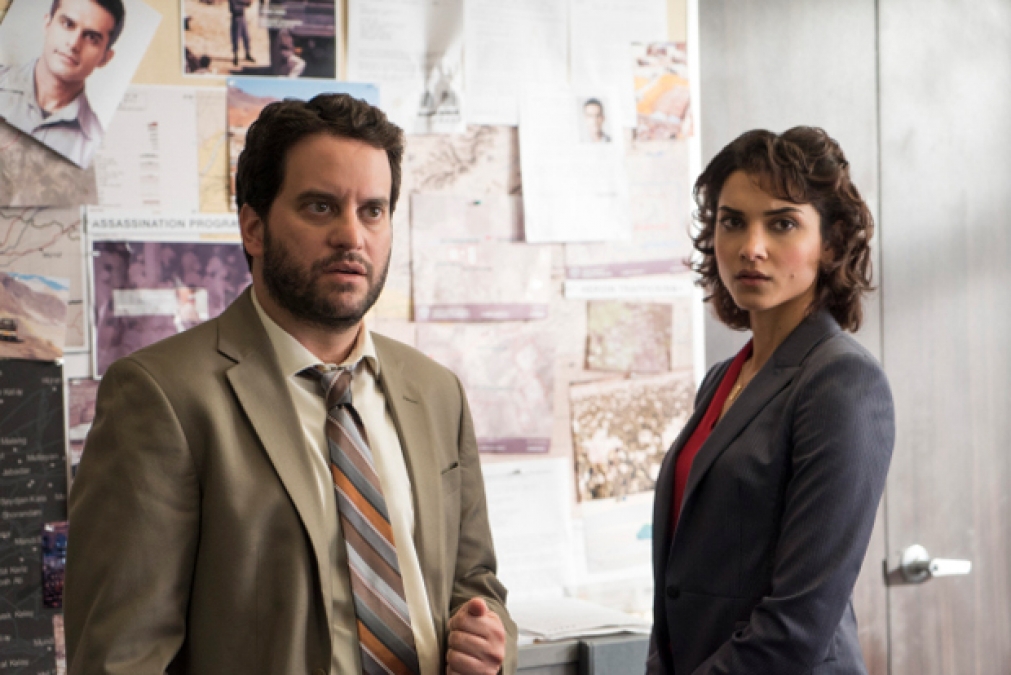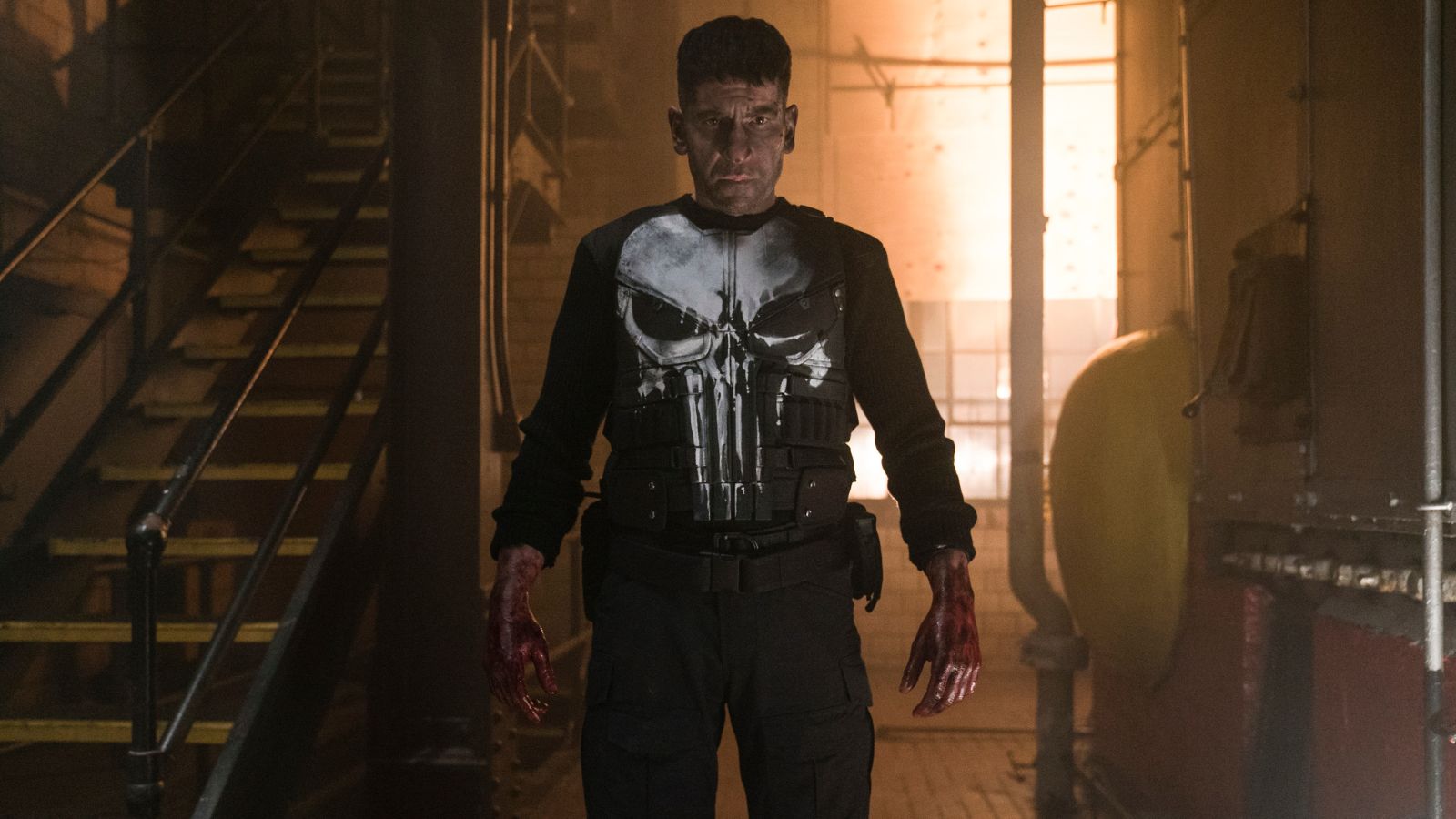More than a year ago, the second season of Marvel’s Daredevil was met with great anticipation. Its first season was the inaugural series for Marvel’s Netflix programming and was praised by fans and critics alike for introducing grounded super-powered characters within the Marvel Cinematic Universe. Marvel’s Netflix programs have been good for the most part, but season one of Marvel’s Daredevil laid the foundation for the MCU to have street-level characters. But why was season two so anticipated? Because its earliest trailers teased us with a proper on-screen (re)-introduction to one of Marvel’s most popular anti-heroes. This character was born in the Dirty Harry/Death Wish era of the 1970s and was so polarizing that filmmakers pathetically struggled to portray the character accurately in three separate films over the course of nearly 20 years. When Marvel started regaining their properties from the movie studios that mangled them, they were committed to having faithful adaptations of those properties. The Hulk, Daredevil, Ghost Rider, and most recently Spider-Man have all been well-received for their portrayals under Marvel Studios’ roof. However, it was the character of the Punisher who needed a correct portrayal the most.
His debut in Marvel’s Daredevil season two defied expectations. A violent man with no super powers, Frank Castle is a former Marine whose wife and children were slaughtered right in front of him, giving him a permanent hard-on against criminals. With his fearsome white-skull insignia and reputation, the Punisher’s embrace of killing criminals pitted him in a physical and ideological battle against Daredevil. Having Jon Bernthal play the Punisher brought out the character’s dimensions and emotional depths (in addition to a plethora of “HOLY CRAP!” action scenes) in ways that the previous big-screen portrayals sorely failed at. For me, Bernthal’s Punisher stole the show in his debut. So much so, that I actually tell the uninitiated that Marvel’s Daredevil Season Two should be re-christened “Marvel’s The Punisher – Season One”. After much delay, particularly due to national tragedies, that debut season landed last Friday. While the series continues and expands on the story of the Punisher and his war on crime, it also serves as a social treatise. Given the rampant amount of American mass shootings, I saw the series in-part as a blistering commentary on gun control and a look inside the psyches shell-shocked war veterans.
PLOT: After traveling across the country killing what’s left of the Hell’s Kitchen mob factions, Frank Castle burns his Punisher emblem-laden bulletproof vest and goes into a hiding as “Pete Castiglione”. Still traumatized by his war experiences and the loss of his family six months after abandoning his killing streak, Frank tries to lay low as an aloof, unshaven, bricklayer in New York City. Though the world believes him to be dead, the few human contacts he does retain as Frank Castle are comprised of paralegal-turned-reporter Karen Page (Deborah Ann Woll reprising her role from Daredevil) and his former military ops buddy, Curtis Hoyle (played by Jason R. Moore) who leads a support group for retired servicemen. Beyond them, Frank does his best to avoid human connection, including with his own feelings. He spends most of his time on the construction job, knocking down walls with a sledgehammer even after hours, much to the consternation of his criminal co-workers. It isn’t long until those men antagonize him enough to bring back the Frank Castle who ultimately knocks them down and keeps them down.
 Micro is to the Punisher what Weasel is to Deadpool.
Micro is to the Punisher what Weasel is to Deadpool.
The plot moves forward with the introduction of David Lieberman (played by Ebon Moss-Bachrach). Code-named “Micro”, Lieberman is a former analyst for the National Security Agency who was forced to fake his own death to his family and the world when he discovers video evidence of a torture/murder involving a conspiracy between the Department of Homeland Security and the Central Intelligence Agency. A capable technological expert, Micro has been tracking Frank through gait surveillance and hopes to ally with him since they share a common enemy. After a very rough start, Frank teams with Micro and learns that his military commanders during his time in Afghanistan were financing illegal assassination operations (Frank was part of the one in Micro’s video, called “Operation Cerberus”) with drug profits. Frank’s natural opposition to the operation is what led to the deaths of his family. The Blacksmith (Ray Schoonver, played by Clancy Brown) reappears here in flashback scenes and is revealed to be a head of the operation.
Navigating through the web of deceit proves difficult for Frank. Dinah Madani (played by Amber Rose Revah) is an Iranian-American DHS agent whose partner was the man murdered in the video held by Micro. Her investigation into her partner’s death is obstructed by her superior, Carson Wolf (played by C. Thomas Howell) who clearly has something to hide. His deceit results in an encounter with Castle which doesn’t end well…for him. To complicate matters, DHS are trained by Anvil Securities, a private military contractor owned and operated by Billy Russo (played by Ben Barnes), a suave silver-tongued businessman and Frank’s best friend from their time as U.S. Marines. Being partnered with Micro leads to Castle’s re-connection with the world. Spending time with Micro’s wife and children makes them emotional surrogates for the family Castle lost. In the quest for revenge, the rabbit hole goes deeper. A mysterious man code-named “Agent Orange” is discovered to be the guy pulling all the strings and in a very Bourne-like sequence of events, the plot reveals clandestine government agency collusion with the same rationalizations for their criminal acts: To protect national security and save American lives. Agent Madani is one of few officers committed to uncovering the truth and to lawfully punish those responsible. But she finds herself in more danger with her knowledge that Castle is alive.
 Sam Stein (played by Mike Nathanson) and Agent Madani. Partners.
Sam Stein (played by Mike Nathanson) and Agent Madani. Partners.
The support group that Curtis Hoyle leads begins as a sub-plot that ultimately becomes a humanizing element for Castle. Russo finances the group as a favor to Hoyle and both men share a fraternal bond with Castle that’s damaged, but unbroken. Two of the support group’s attendees tend to stand out the most: O’Connor (played by Delaney Williams from The Wire), an army veteran whose claims of war experience during Vietnam are later revealed to be exactly that: Claims. And then there’s Lewis Wilson (played by Daniel Webber), a disturbed young veteran who can’t adjust to civilian life and comes to the fatal belief that the American government cares nothing for the soldiers it sends to war. It’s not too long before his manufacturing of homemade bombs and an assassination attempt on both Karen and a U.S. Senator put him at deadly odds with Frank, who expresses disgust with Lewis’ cowardly violence. His instability was so apparent that Russo had to let him go from Anvil. Lastly, Russo is not the benevolent former marine he appears to be either. He turns out to be involved with Agent Orange as well and when Frank learns of this, it re-awakens the Punisher. Complete with weapons and a new white skulled-vest, Frank does what he does best: Kill. Only this time, he’s avenging the deaths of his family while shedding the baggage he carries from being a war-hardened marine. By the end, justice has a new enemy, one which now has a different face.
MY TAKE: No matter what war one has served in honor of their country, there’s give and take on both ends. War changes a person. They invariably leave something behind in the warzone as much as they take something away from it. For some returning soldiers, fighting in a frenzied battle zone is all they know. I think it’s safe to say that it gradually becomes all they want to know. They can’t get re-adapt into the routine that comes with civilian life, so some of them re-enlist for another tour-of-duty. It’s a gratifying addiction for them, and the characters of Frank Castle, Lewis Wilson, and even Billy Russo embody it. Castle is a decorated Marine soldier whose family anchored him to the world until they were tragically ripped from him. As the Punisher, his learned Marine skills come in handy for his one-man war. He clearly has post-traumatic stress disorder from Afghanistan that only got amplified from the shock of watching his family get killed. Lewis Wilson is younger than Castle and Russo, but couldn’t properly cope with his own PTSD and actually dug a foxhole in his parents’ backyard to adjust. With his taxi cab occupation and growing homicidal impulses, he isn’t unlike Travis Bickle from Taxi Driver (1976). Billy Russo found a way to profit from war when he made it back into the world. Though outwardly a playboy businessman, he’s an efficient fighter and shooter with PTSD issues stemming from being adopted as a child and having a bizarre Norman Bates-like relationship with his crystal meth-impaired mother. The three characters have something else in common: They are all traumatized White male war veterans with guns in their hands.
 Curtis Hoyle and Lewis Wilson before things went bad.
Curtis Hoyle and Lewis Wilson before things went bad.
The shooting in Las Vegas back in early October was an event that left 58 people dead, over 500 injured, and a re-awakening of the gun control debate and the U.S. laws that surround it. It also had the effect of delaying the release of The Punisher. The domestic church massacres were also a factor. All of these events draw parallels to what I saw in the series: Mentally disturbed White men with easy access to deadly weapons as well as the willingness and eagerness to use them with deadly force. And while some reviews have decried the series because of this, I think it’s essential. Not just because it’s true to the themes and character of the Punisher, but because it’s true to harsh reality as well. The long-awaited Logan was released earlier this year to the delight of most viewers because of its long-overdue “R” rating which allowed the title character to go into the berserk killing rages he’s known for. For me, the violence in that film felt over-the-top, as though the filmmakers were doing it merely to celebrate the fact that the movie was rated “R”. It’s the same reason why I stopped watching AMC’s The Walking Dead: It became violent just for the hell of it. Marvel’s The Punisher, on the other hand, uses gun violence to make a statement about gun violence and those behind it. Violence is in the characters’ natures, but just like their real world counterparts, those impulses can be useful if channeled correctly.
Government criminal conspiracies were a notable theme in this series, along with the government being an institution that indiscriminately betrays even those loyal to it. Frank Castle and Micro were once beholden to the government until it took away what mattered most to them. It turned them both into men on-the-run, hiding, and looking for ways to get back at a system that injured them. Also, the interaction between both men is similar to its source material: The Punisher’s aggressive and gruff nature is in stark contrast to Micro’s garrulous nature. But their relationship thrives because it’s one of symbiosis. They ultimately depend on each other for survival. The series also seems to take aim at politicians who campaign for superficial gun control laws. In one scene, a senator nearly becomes victim to a domestic terrorist attack and uses a woman as a human shield at one point, betraying his cowardice.
Apart from the social commentary, Marvel’s The Punisher stands apart from its Netflix counterparts. It clearly has its roots in the MCU, but it makes very little connection to it. Unlike any of the Defenders, the Punisher is neither “super” nor a “hero”. He’s just a vigilante who’s entirely too deadly with a gun in his hand. He’s the one protagonist who’s prepared and willing to go all the way to stop the major crimes that he sees as an infection. Because he has no compunctions about killing, it’s easy to assume that he’s heartless, but that isn’t true for the most part. It’s not that the character of Frank Castle is a cold and heartless killing machine. It’s that he has absolutely no fear of getting blood on his hands, in both a figurative and vividly literal sense. Jon Bernthal is the one actor who was finally able to do the character justice. In the leading role, he brings forth a Frank Castle who is a bottle of barely-containable rage who has to come to terms with what he’s lost and what he has become. His appearance in Daredevil displayed his transition into the Punisher, but his own series had him unsure of occupying that role until the end. The media may know his name, but he’s not really the Punisher until he dons his signature emblem.
Ben Barnes shines as Billy Russo. He plays the part like a snake who charms everyone around him. But let’s not ignore the obvious, everyone who reads the comics and saw Punisher: War Zone (2008) knows that Billy Russo is Jigsaw. If the ending of this season is any indication, Russo will be taking the role of the lead antagonist with an apropos nom-de-crime in the next season. The Punisher’s weak link to the MCU is also apparent in two ways. Deborah Ann Woll returned as Karen Page, with her character being needed as Castle’s advocate to a world that doesn’t understand him. One reprised role I was expecting was Rosario Dawson as Claire Temple, the Night Nurse. This is the first Marvel Netflix property that didn’t include Ms. Dawson as her character is the the one constant thread that connected all of them until now. The female characters of The Punisher seem to be the voices of reason in this world of violence. Amber Rose Revah’s Agent Madani is a woman who wants to do the right thing, but is obstructed and manipulated by men of higher stature and greater power. Micro’s wife, Sarah (played by Jaime Ray Newman) is a bereaved wife and mother who struggles to maintain sense within her unraveling world.
Marvel’s The Punisher will be understandably too violent for some, even with the points being conveyed. Even the titles of each episode (“Memento Mori”; “Two Men Dead”; “The Judas Goat”, and “Cold Steel” to name a few) evoke the kind of aggressive, violent, mournful imagery that bear similarities to the song titles on albums from hip-hop artists like Sadistik or the Jedi Mind Tricks. Whether you loved it or hated it, one fact can’t be denied: Jon Bernthal’s Frank Castle is the Punisher we’ve been waiting for and he did not disappoint.





